Reaching RDS Resources (Mac)
The MicroAge Lab maintains a Microsoft Remote Desktop Services (RDS) infrastructure to broker access to Windows-based servers in the lab. These RDS components allow a user to work on these machines running on the lab's servers via a remote connection.
Launching RDS Resources from a Mac
These instructions are for Mac users. Please instead see this page if you need instructions for connecting from a PC.
To access RDS resources from a Mac, the Microsoft Remote Desktop 10 app needs to be installed.
1. Go to App Store.
2. Search for Microsoft Remote Desktop 10 in App Store.
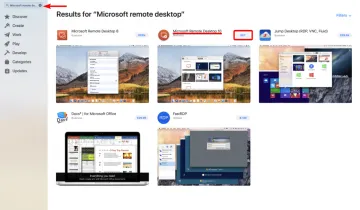
3. Download and install the Microsoft Remote Desktop 10 app on your Mac.
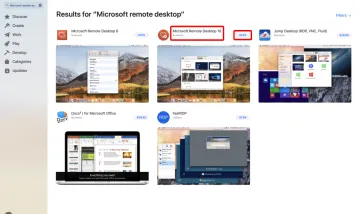
4. Go to the MicroAge Lab RDS web access site: https://rdgw.microagelab.arizona.edu
5. For the domain\user name, put catnet\<your NetID>. (For example, my userID is xiaol, so I put catnet\xiaol here). Make sure to put backslash here (not a forward slash); otherwise it will not work!
For password, put your NetID password. When done, click Sign In.
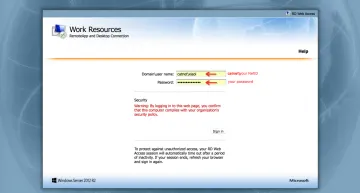
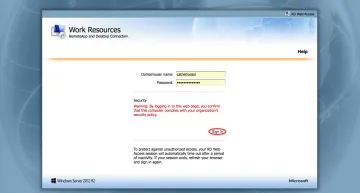
6. On the Work Resources RemoteApp and Desktops page, you will be presented a list of remote machines that you are permitted to access. To begin working with one of them (in this example, we're trying to access the MicroAge Lab Staff resource; your resource will have a different name), click on it to download the .RDP file to your machine.
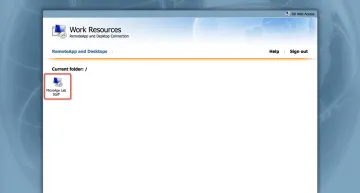
7. After the file is successfully downloaded, click on the downloaded file in your browser it to launch. Once launched, the file should automatically open with the Microsoft Remote Desktop 10 app.

You may also find the file in your computer's Downloads folder:

8. When connecting, you'll be prompted again for credentials. Input your catnet\<your NetID> and password again, same as step 5, then click OK. This will attempt the login process.
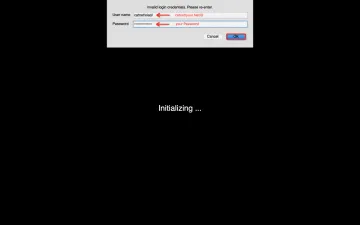
10. You will be logged in and your remote resource is ready for use.
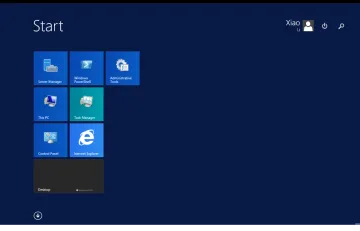
More Information About Our RDS Resources
Some other things you should know about machines in our RDS system:
- We apply idle session limits to our machines. This is similar to a screen lock; when a user does not interact with the remote resource screen for a period of time (for example, 30 minutes), the connection will be terminated but the session itself will still be running on the remote computer. A user can log back in to the system to continue their work where they left off, so long as the session hasn't been disconnected for 2-3 days.
- We apply disconnected session limits of 2-3 days, to allow for background patching and administrative activity to take place. This means that if you become disconnected from your session and don't reconnect within 2-3 days, you will be logged out, and any work still running won't be saved!
- If you need additional users to have access to your machine(s) over the RDS, please contact us with a detailed support request.
- MicroAge Lab staff retains administrative access rights to all machines under our purview, but generally only use these when needed, and expect our administrative end-users to manage their own machines in accordance with our University's information security policies and with security best practices.

